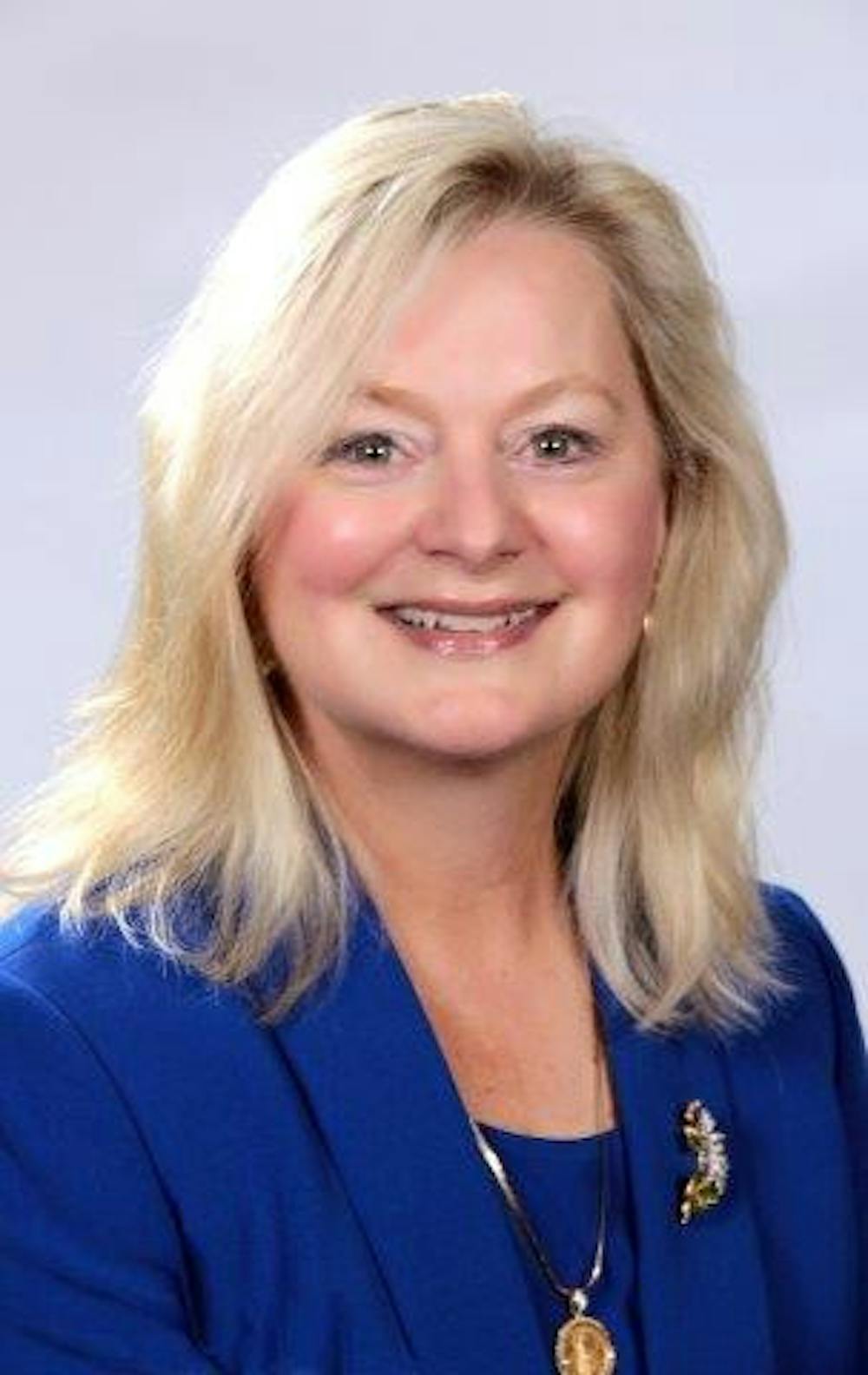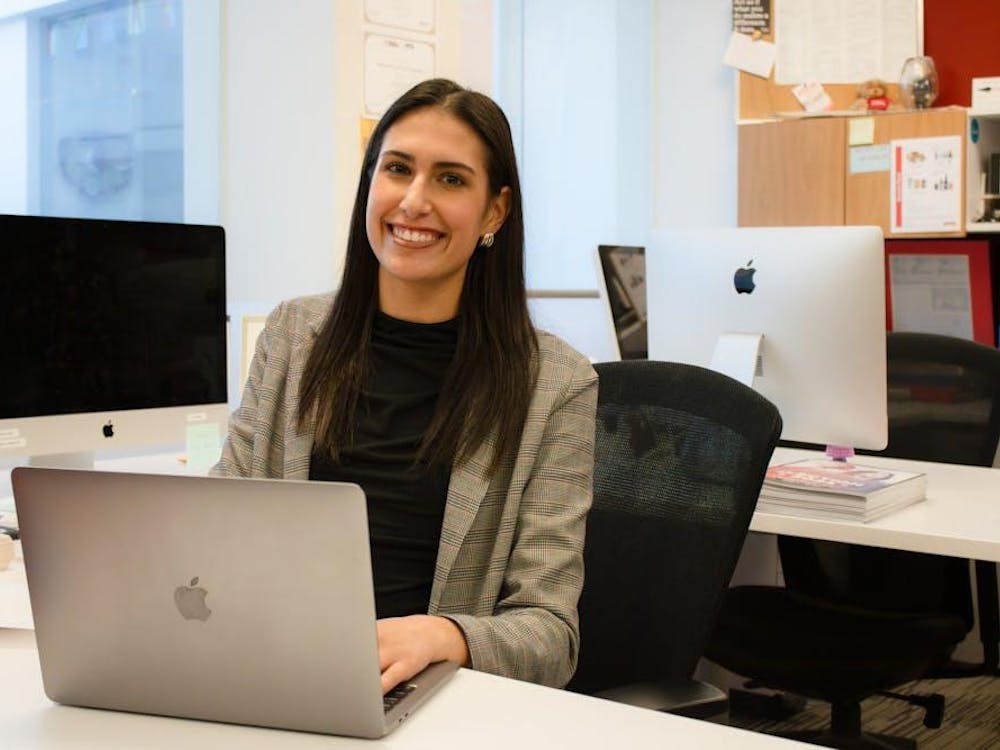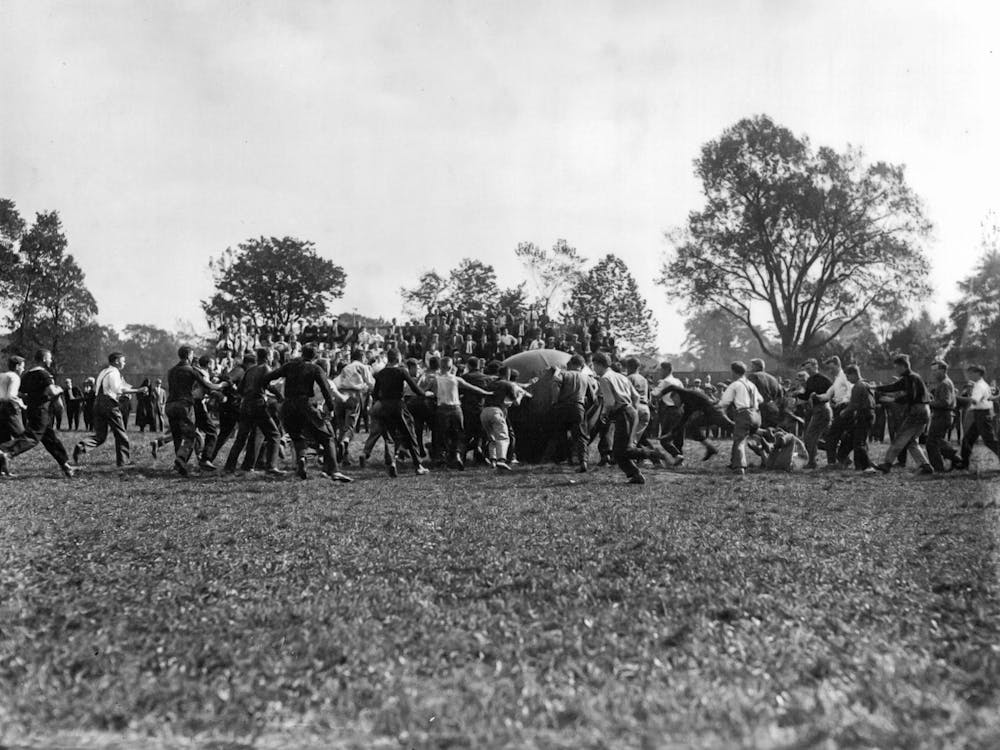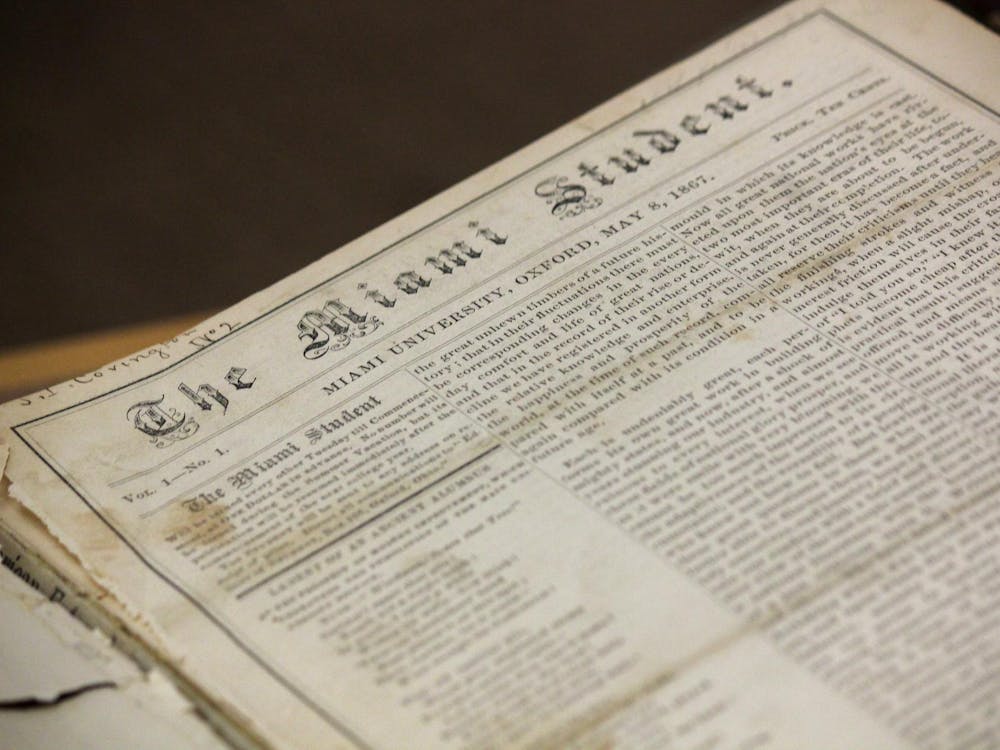When Karen Lefton set her sights on working for the Akron Beacon-Journal in 1979, she wasn’t going to take no for an answer.
“She annoyed the hell out of me,” said then-metro editor Tim Smith. “She kept pestering me for a job. Finally, the only way I could get her off my back was to hire her.”
Lefton had graduated from Miami University in December of 1978 and started working at the Kettering-Oakwood Times in June, but she knew she wanted to be at the Beacon-Journal. She said the editors kept telling her she needed more experience, but they eventually hired her in January 1980.
“That turned out to be one of my better decisions as an editor at the Beacon-Journal,” Smith said.
For Lefton, the Beacon-Journal was an important step in her career which carried her from a staff writer at The Miami Student in the 1970s to a lawyer representing The Washington Post in 2019.
Getting involved with student journalism
When the Watergate scandal broke in 1973, Lefton was a sophomore in high school. She’d wanted to be a journalist since at least seventh grade, but after that, interest in the field skyrocketed.
She applied to Miami for its journalism program in 1975 and quickly got involved with The Student after learning that her roommate’s sister was the editor.
“I had an assignment right away, and my first story was at the top of the front page of The Miami Student,” Lefton said. “My English prof even made a comment on it in class … so I was off and running very, very, very luckily, and the stars aligned.”
In her sophomore year, Lefton moved up to copy editor and became managing editor in her junior year.
After she graduated, Lefton had built up a solid collection of clips and experience that she credits with helping her land jobs.
“My student experience really helped me with getting a really good clipbook,” Lefton said, “and my experience as a copy editor helped me be a better writer, a better reporter.”
Enjoy what you're reading?
Signup for our newsletter
Combining journalism and the law
Lefton didn’t stay idle once she got her job at the Beacon-Journal. As a journalist in her early 20s talking to sources who were much older, she felt that she wasn’t being taken seriously and needed more authority to cover legislative issues.
So, in September 1981, she started taking classes at the University of Akron to get a law degree in her spare time.
“I really did that just so that I could understand the things I was writing about better,” Lefton said, “so that I could know the right questions to ask and I could know when I was given appropriate answers or when they weren’t. The real goal was just to be a better journalist.”
A couple years after starting at the Beacon-Journal, Lefton became a copy editor. The job’s early hours, 4 a.m. until noon each day, made it easier for her to attend classes, and she graduated with her law degree in 1984.
Over the next decade, Lefton moved to assistant news editor and then city editor. After 17 years in the newsroom, she moved into management as a labor relations manager before becoming associate general counsel and finally General Counsel. She was in charge of the paper’s legal work, from public records to labor and employment relations.
Then, in 2008, Lefton made the jump to private practice. The Beacon-Journal became a client of the law firm that she worked for until she left in 2014 to start her own practice.
Taking on pharmaceutical companies — and the federal government
Five years after Lefton started her practice, The Washington Post and the Charleston Gazette-Mail sued the federal government for access to a database established by the Drug Enforcement Administration to track drug sales. A massive lawsuit with dozens of pharmaceutical companies and thousands of plaintiffs made its way through the judicial system accusing the companies of intentionally misrepresenting the dangers of opioids.
Investigative reporter Scott Higham was looking into the opioid crisis for The Washington Post at the time. The database should have been a public record, but a judge fought to keep it sealed. Because the lawsuit was so huge, Higham said every lawyer the publication would normally turn to was a conflict of interest.
So, they started searching for a lawyer in Ohio where the case was being held. After asking around, Higham’s search led him to Lefton.
“I did see that it was the Washington Post calling, and I thought, ‘Did I not pay the bill?’” Lefton said.
It wasn’t the paper’s sales team but one of its in-house lawyers asking her to take the case. At first, Lefton was taken aback, but she quickly accepted the opportunity.
“She's been around journalists her whole life, and she gets it,” Higham said. “She understands why it's important. I think that that passion fueled her to carry the day.”
Lefton argued for the database and thousands of other documents to be made public in front of the 6th U.S. Circuit Court of Appeals. Up against billion-dollar companies and the federal government fighting to keep the database private, Lefton won.
“It’s kind of like running a marathon, and then you look around and you see, ‘I crossed the finish line, and I crossed it first,’” Lefton said. “Who thinks they’re gonna win a marathon?”
When the data became public, The Washington Post created a database to show every sale of a dozen different types of pills from 2006 to 2014, broken down by county. Higham said there were moments during the case that he didn’t know whether they would win, but they were prepared to take it to the Supreme Court if necessary.
For Lefton’s former editor Smith, who by 2019 had left the Beacon-Journal to teach at Kent State and helped Lefton on a case-by-case basis, her victory was unsurprising.
“Karen was never intimidated by the power of an opponent, and she found about as big a one in Big Pharma as you could’ve encountered,” Smith said.
Lefton didn’t know when she started writing at The Student that her career in journalism would eventually lead her to law and to successfully arguing against some of the biggest companies in the world. Looking back now, she doesn’t have regrets.
“I just always wanted to do good in addition to doing well,” Lefton said. “I feel that as a journalist you can do that, because as we’ve often said, journalists comfort the afflicted and afflict the comfortable.”




